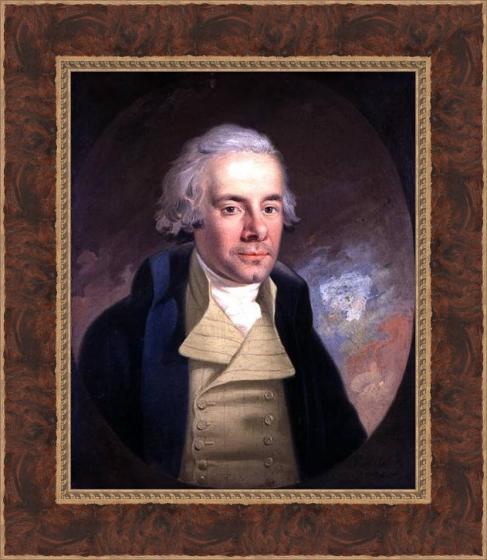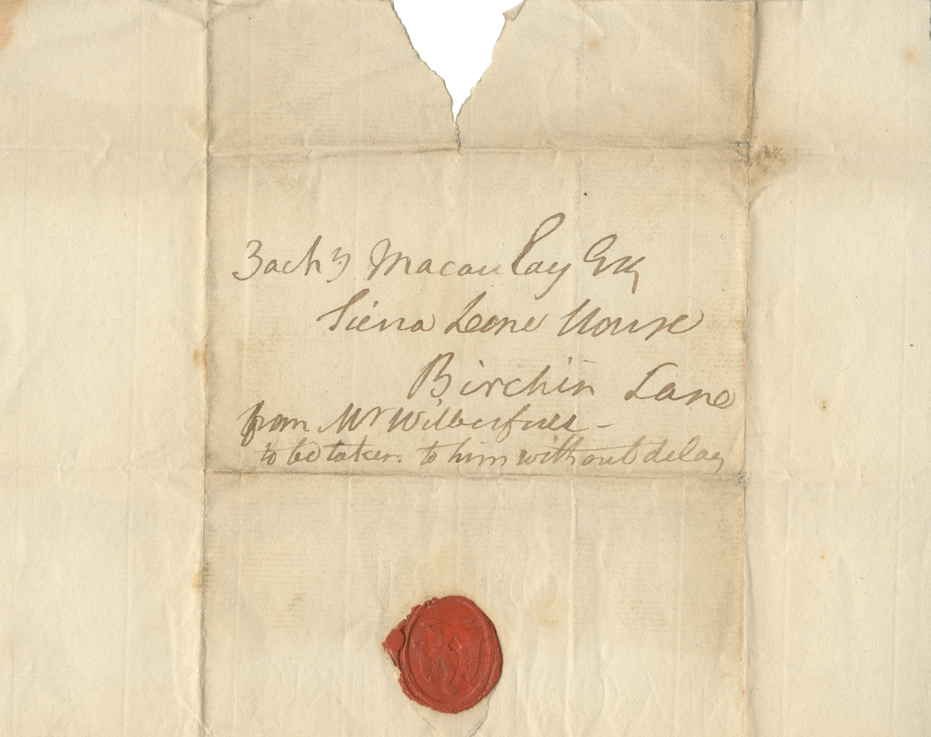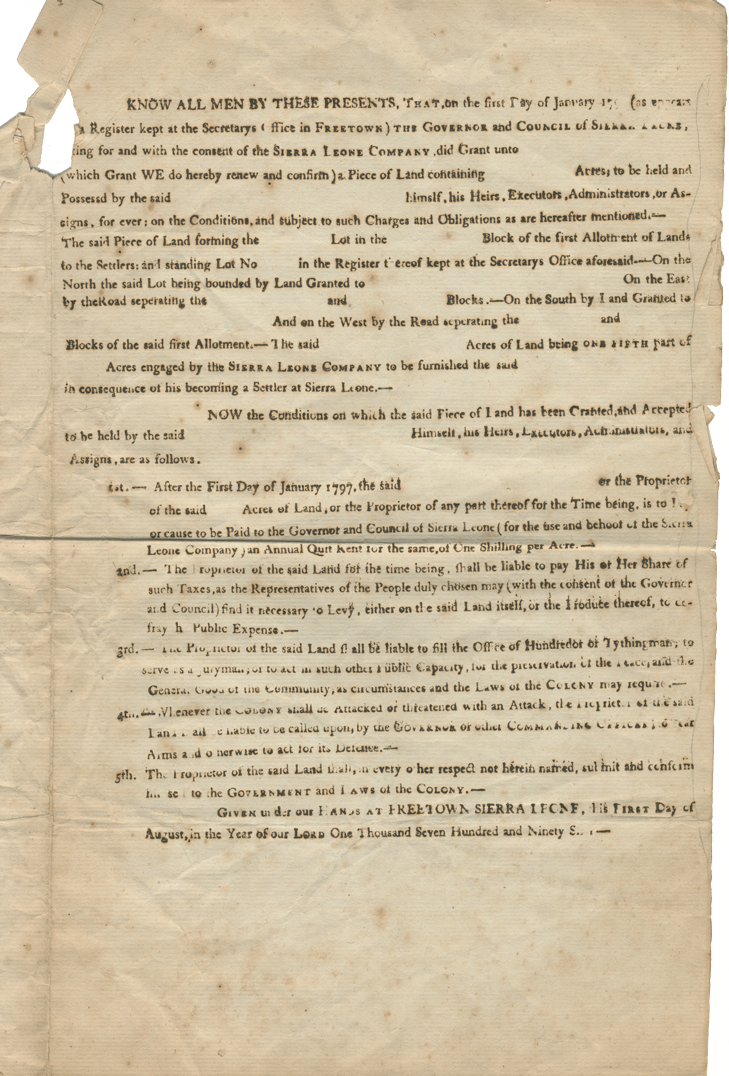William Wilberforce
William Wilberforce
Signed Subscription & Sierra Leone Land Grant - 1797
Historically important documents directly related to abolishing the slave trade in the then-British African colony Sierra Leone.
Exceptionally scarce signed autograph subscription on address leaf of letter (non-extant) from renowned English abolitionist William Wilberforce addressed to fellow anti-slave activist and Governor of Sierra Leone Zachary Macaulay, signed by Wilberforce. Undated, measuring 6″ x 8″, with fully intact official red wax seal, and v-shaped tear at top where wax was used to seal the letter. In full addressed as:
Zachary Macaulay Esq.
Sierra Leone House
Birchin Lane
from Wm. Wilberforce —
To be taken to him without delay
Also included in this lot is a remarkably rare unused Land Grant dated 1797 issued by the Sierra Leone Company, and used to award free land to former slaves of the American colonies, freed by the British during the American Revolution and forced to relocate after the British defeat. Tear to upper left corner with integral leaf intact.
The SIERRA LEONE COMPANY was involved in founding the second British colony in Africa in 1792, through the resettlement of Black Loyalists who had initially been settled in Nova Scotia after the American Revolutionary War. The company came about through the work of the ardent abolitionists, Granville Sharp, Thomas Clarkson, Henry Thornton, and Thomas’s brother, John Clarkson, who is considered one of the founding fathers of Sierra Leone.
During the late 18th century the Sierra Leone’s acting governor, Zachary Macauley, and his council agreed to accept American blacks as settlers with a gift of free Sierra Leone land if they met four criteria: they must have letters of recommendation of their upright character from their clergy; they must agree to become British subjects and abide by British law; they must secure their own passage to the colony; and they must clear at least one third of the land given to them for agriculture within two years of arrival.

Image not included; for reference only
WILLIAM WILBERFORCE (1759-1833) was a prominent English politician and a leader of the movement to abolish the slave trade. He began his political career in 1780, eventually becoming an independent Member of Parliament. In 1785, he became an Evangelical Christian, which resulted in major changes to his lifestyle and a lifelong concern for reform.
In 1787, Wilberforce met English abolitionist Thomas Clarkson and other prominent anti-slave-trade activists, who persuaded him to take on the cause of abolition, and he soon became one of the leading English abolitionists. He headed the parliamentary campaign against the British slave trade for twenty years until the passage of the Slave Trade Act of 1807.
Wilberforce was convinced of the importance of religion, morality and education. He championed causes and campaigns such as the Society for the Suppression of Vice, British missionary work in India, the creation of a free colony in Sierra Leone, the foundation of the Church Mission Society, and the Society for the Prevention of Cruelty to Animals.
ZACHARY MACAULAY (1768-1838) was a Scottish statistician, one of the founders of London University and of the Society for the Suppression of Vice, an antislavery activist, and governor of Sierra Leone, the British colony for freed slaves. Like his famous son Thomas Macaulay, he divided the world into civilization and barbarism with Britain representing the high point of civilization because of its adherence to Christianity. He worked endlessly to end the slave trade and to Christianize and improve the world.


